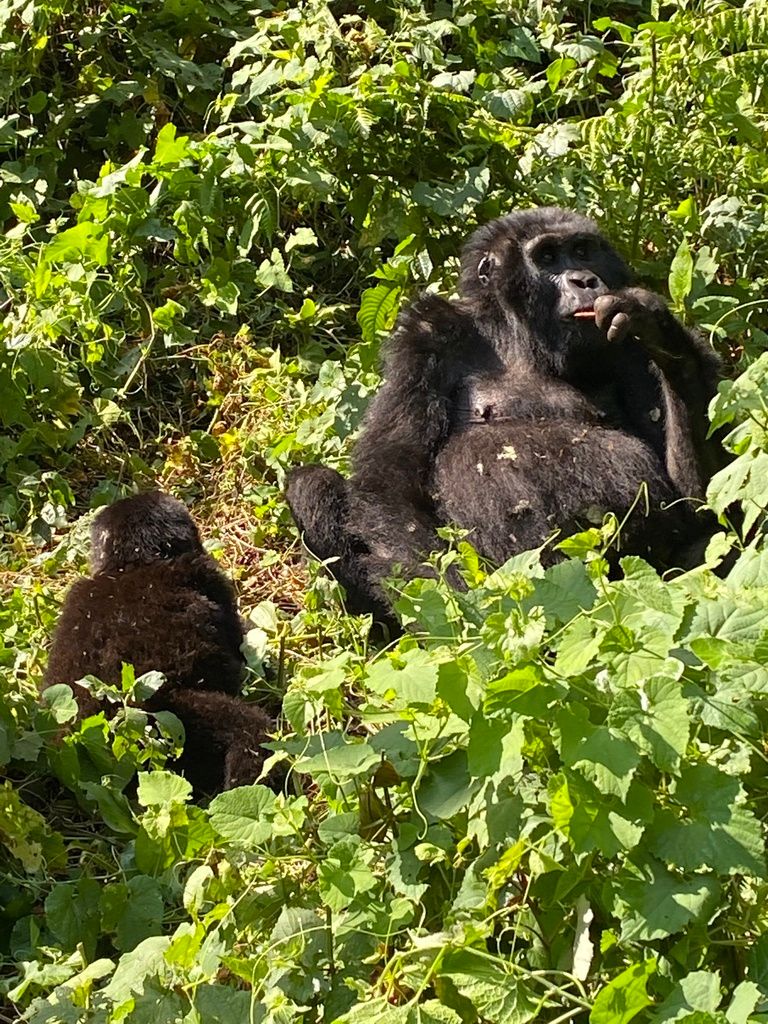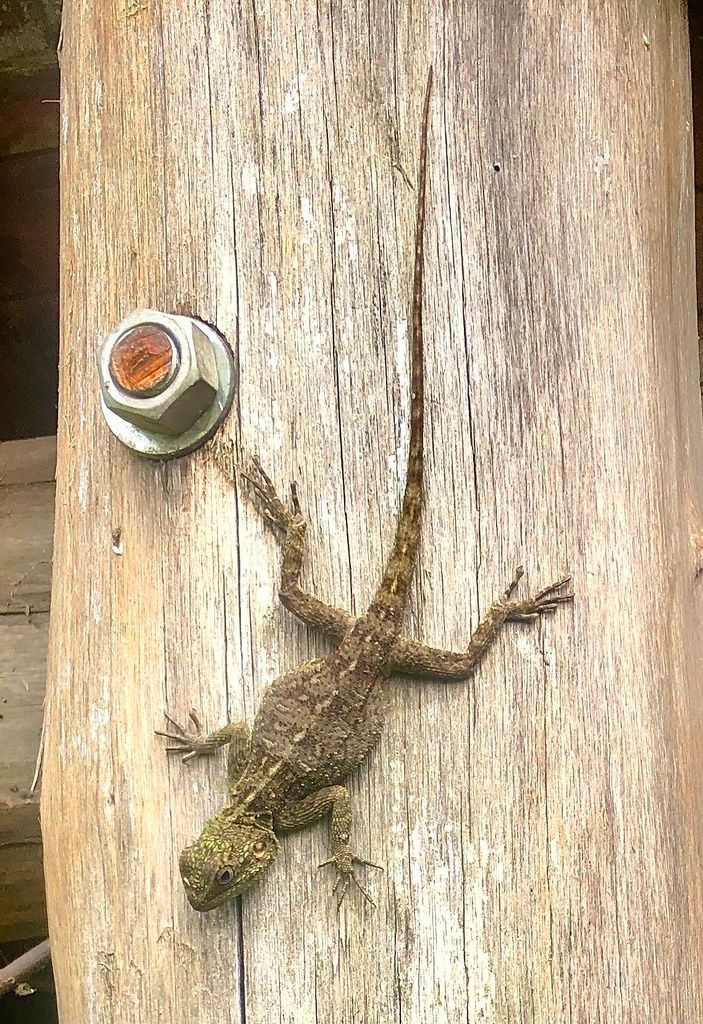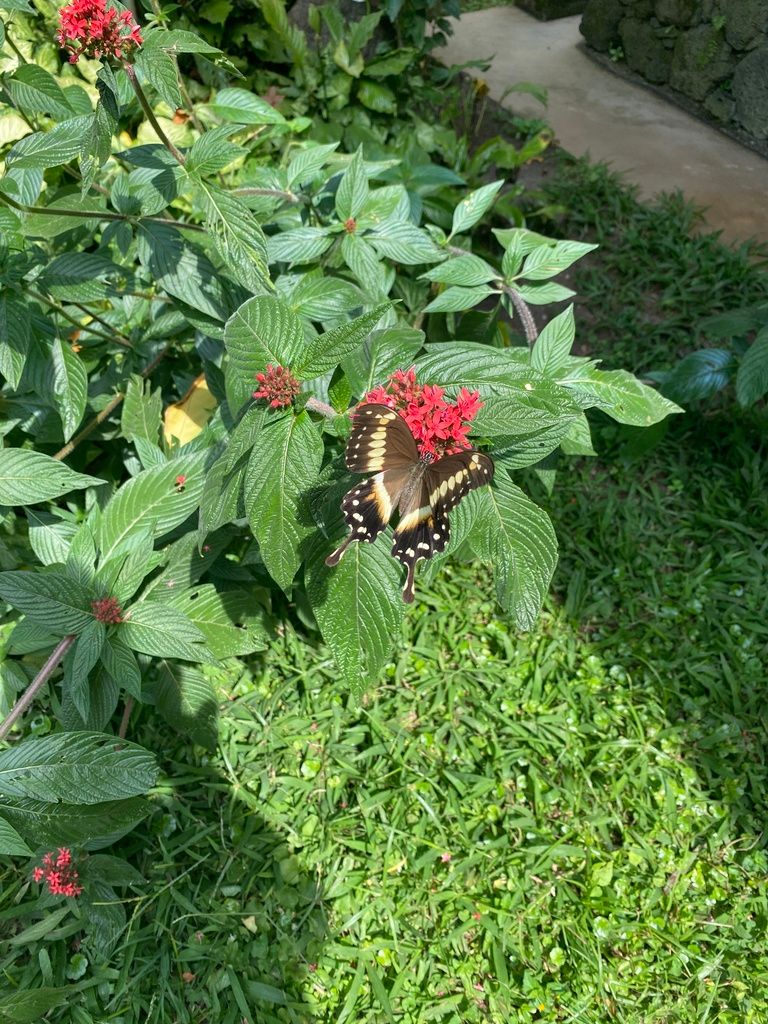ReFi Roundup #27: The Story of Redemption DAO
In this week's edition of ReFi Roundup I'm going to share the story of Redemption DAO as I think it's a pivotal point in the ReFi movement...
On Wednesday morning the ReFi community discovered that the Democratic Republic of Congo was going to auction 27m hectares of land—30 blocks across 5 distinct basins —to oil companies for oil exploration. Nirvaan from Climate Collective posted this New York Time's story to the ReFi DAOist community which provided the spark for RedemptionDAO to emerge.
The Congo Basin holds roughly 8% of the world's forest-based carbon. It is home to over 80 million people. More than 10,000 species of plants depend upon the forest for their survival. It is home to some of the most beautiful and rare animal species on the planet—many of whom are on the risk of extinction.
A new DAO is born...
Within a few hours Redemption DAO was born to win the auction – but use the land for Nature-Based Services (not oil) and preserve them for the local community. Redemption DAO surfaced as a rapid collaboration between many of the top organizations in ReFi alongside a group of organizers and activists on-the-ground in the DRC. It's comprised of some of the top leaders in the regenerative finance space, most of whom are in ReFi DAO Founder's Circles—showing the deep commitment to collaboration that defines the regenerative finance space.
- Jae-Hee Bae from Civics Unplugged
- Carl Cervone, Dream DAO champion
- Helena & Doug from Spirals Protocol
- Phil from Flowcarbon
- Gregory from Regen Network
- Wes from HBAR Foundation
- Mallika from Questa Games
- Holly from Astral Protocol
- James from Helios
- Gloria and Ben from Gitcoin
- Cyrus from Eden Dao
- Ale from Impact DAO and FiftyYears
- Max from Carbonbase
- Hayley from Thallo
With a full list of organizations and contributors involved here: RedemptionDAO Orgs

Redemption DAO's theory of change
In a similar way to the Constitution DAO's $50M bid for the US Constitution, Redemption DAO believes it can rally a community of support around the #SaveCongoBasin story to raise enough funds to win one or more blocks -- and develop an innovative model of co-stewardship of natural assets with local communities.
Several of the Redemption DAO organizers are in touch with top CEO's around the world, including some of the most wealthy people on the planet. The business case is clear:
- Purchase the rights to use the land
- Preserve land and generate yield through avoided deforestation credits
- Use credits to fulfill net zero commitments, and sell any excess to reinvest in the local community
If the right events fall into place and humanity gets behind the Redemption DAO movement we may well see a major win for the local communities who have been working on the ground tirelessly year after year to protect the Congo Basin. They've been doing their best to get their voices heard but it took a crisis to bring this to mainstream media.
This won't just be a win for the DRC, or for Africa. It will be a win for all of humanity as we finally discover how to truly value what matters most.
If Redemption DAO fails to acquire and preserve any of the parcels of land there's also an opportunity to apply social and legal pressure to the oil companies to preserve the integrity of the forests as much as possible. With the increasing demand for carbon credits, we will undoubtedly see a major shift in geopolitics away from fossil fuels and towards natural resources and renewable energy.

Let's front-run the opportunity and show people how it's done!
Unpacking the auction process
At first, it appeared as though the auction was going to be complete by the end of day today—July 29th, but thanks to some digging from French-speaking friends in Redemption DAO (Cyrus and Nathan), we know have until Q1 2023 to create a bidding entity and submit a bid.
That should give Redemption DAO enough time to build a coalition, raise several billion dollars and secure as many of the 30 plots as possible.
“the counting of the offers will take place in public session and in the presence of the candidates or their representatives on the date and at the address below: February 03, 2023 Commune de la Gombe à Kinshasa ”
Below are several key resources for unpacking the process:








A moonshot with huge potential
The current criteria is heavily focused on experienced oil project developers. It would take significant social and political pressure to get a seat at the table—but this is exactly the kind of feat that would grab global headlines and create a massive shift on the world stage.
If Redemption DAO is able to bring big capital to the table to preserve the natural world instead of exploiting it for oil—Redemption DAO will have achieved one of the most significant milestones in climate mitigation. It's a long shot but it's worth it. Our climate and our future is at stake.
Social impact
Over 80 million of the 92 million people that live in the DRC live within the Congo Basin and depend on its resources for their survival. Selling these 30 plots to oil companies would be catastrophic for indigenous people—a vital group in humanity's survival who preserve over 80% of the world's remaining biodiversity and maintain a cultural identity that is deeply connected to nature and one another.
Cultural impact
Eight sites in the Congo Basin are inscribed in the World Heritage List with five being marked as 'In Danger'—a number surely to increase if these parcels are auctioned off for extraction.
It's home to seven national parks and has provided home for indigenous people for thousands of years.
- Lobéké National Park
- Lomami National Park
- Nouabalé-Ndoki National Park
- Ntokou-Pikounda National Park
- Odzala-Kokoua National Park
- Salonga National Park
- Virunga National Park
Carbon impact
It's been estimated that there are three years of global annual emissions worth of carbon stored across the 30 parcels for sale. If these were to be sold to extractive oil companies willing to destroy the natural habitat to extract and burn fossil fuels—this single sale could be devastating in the climate story.

Biodiversity impact
More than 10,000 plant species can be found in and around the forest.
Thanks to Mallika, CEO of Questa Game and the lead of the ReFi Gaming Founder's Circle, we have a sizable sample of all the beautiful life forms that call Virunga—a national park in the eastern part of the Democratic Republic of Congo. The habitats of these beautiful creatures are at risk as a result of this auction.









The big picture
The Democratic Republic of Congo has one of the richest natural resource bases—and one of the poorest populations in the world with a per capita GDP of 536.45 in 2020.
To raise revenues, the Congolese government is auctioning 30 tracts of pristine rainforest to oil companies at the end of this month.
In reading DRC president Félix Tshisekedi's article in FT last year leading up to COP 26, he understands the gravity of the climate crisis.
Climate change could wipe out 15 per cent of Africa’s gross domestic product by 2030. This means an additional 100m people in extreme poverty by the end of the decade. This is a cruel fate for a continent that contributes so little to global warming.
He formed a coalition with other African leaders in the African Union to form an "Africa Adaptation Acceleration Program" requesting $25B over 5 years from developed nations to "make good their 2009 pledge to spend $100bn a year mitigating climate change in the developing world."
Five billion dollars a year is a small change — the world spent $20tn to fight Covid-19 — but the key is that this initial capital will help Africa to create much more, through new financial instruments and by de-risking resilience projects to attract private investors.
Tshisekedi didn't get what he asked for, and it's obvious why he would be outraged at the hypocrisy of developed nations who have produced a vast majority of the global emissions to date, have failed to uphold their climate goals year after year, and continue to open new coal power plants and oil rigs in the face of record temperatures, famines, forest fires and biodiversity collapse.
Pragmatic climate finance
With many countries investing billions of dollars in emergent carbon removal technologies with cost curves that decline over several decades—it's clear we need to reassess our priorities with such significant sums of carbon stored in rainforests and natural habitats around the world.
The cost of preserving what we have is significantly less than restoring what is lost. We need to pressure our elected officials to finance climate mitigation and adaptation in the developing world—as these regions are the home of most of the carbon sinks we have left.
Mihir Sharma's piece in Bloomberg titled "To Save the Planet, Poor Nations Need to Get Paid", is well worth a read to unpack this argument in further detail.
The Amazon is in rapid decline due to the demand for beef and leather from the developed world with over 10,000 acres of rainforest being destroyed every single day—equating to the size of California since 1988.
Understanding our role as consumers and citizens
We vote both with our dollars and with our pens.
It's great to see the ReFi movement rallying around protecting both nature and the communities that depend on it. It'd be wonderful to see this consciousness playing out in our everyday purchasing decisions as well.
Every time we fly or eat meat it has a cost. Offsetting carbon doesn't cover the true cost of those emissions—the only way we're going to get out of this mess is by dramatically reducing emissions and migrating away from fossil fuels.
Learning from Gabon
As we can see from Gabon's largest-ever carbon credit sale the story of preserving land for conservation and carbon credits has huge potential. Jeff Bezos visited both Gabon and Congo Basin back in June and has pledged "$10 billion between 2020 and 2030 to battle climate change and preserve nature."

“Jeff (Bezos) is very keen on Gabon,” says Gabon’s Minister of Water, Forests, Sea, and Environment Lee White, in an interview with this writer. “He was extremely engaged. We have an ally for Gabon and for the rainforests and biodiversity. The experience moved him.
Gabon’s forests are part of the Congo Basin. Specifically, Gabon absorbed 1 billion tons of CO2 between 2010 and 2018. Under REDD+ — a financial mechanism to reward countries for saving their trees — Gabon is allowed to sell credits worth 90 million tons."
"The United Nations Framework Convention on Climate Change evaluates that progress before approving their performance and emissions reductions. If Gabon sold its credits for $25 a ton, it would net $2.25 billion."
There is a massive opportunity to present the 30 Congo Basin plots to major corporations as the best way to execute their climate goals, uphold their corporate social responsibility and invest according to the environmental, social and governance concerns of it's shareholders.
If you'd like to help #SaveCongoBasin, it'd be great to connect you with the Redemption DAO team so you can get involved.

